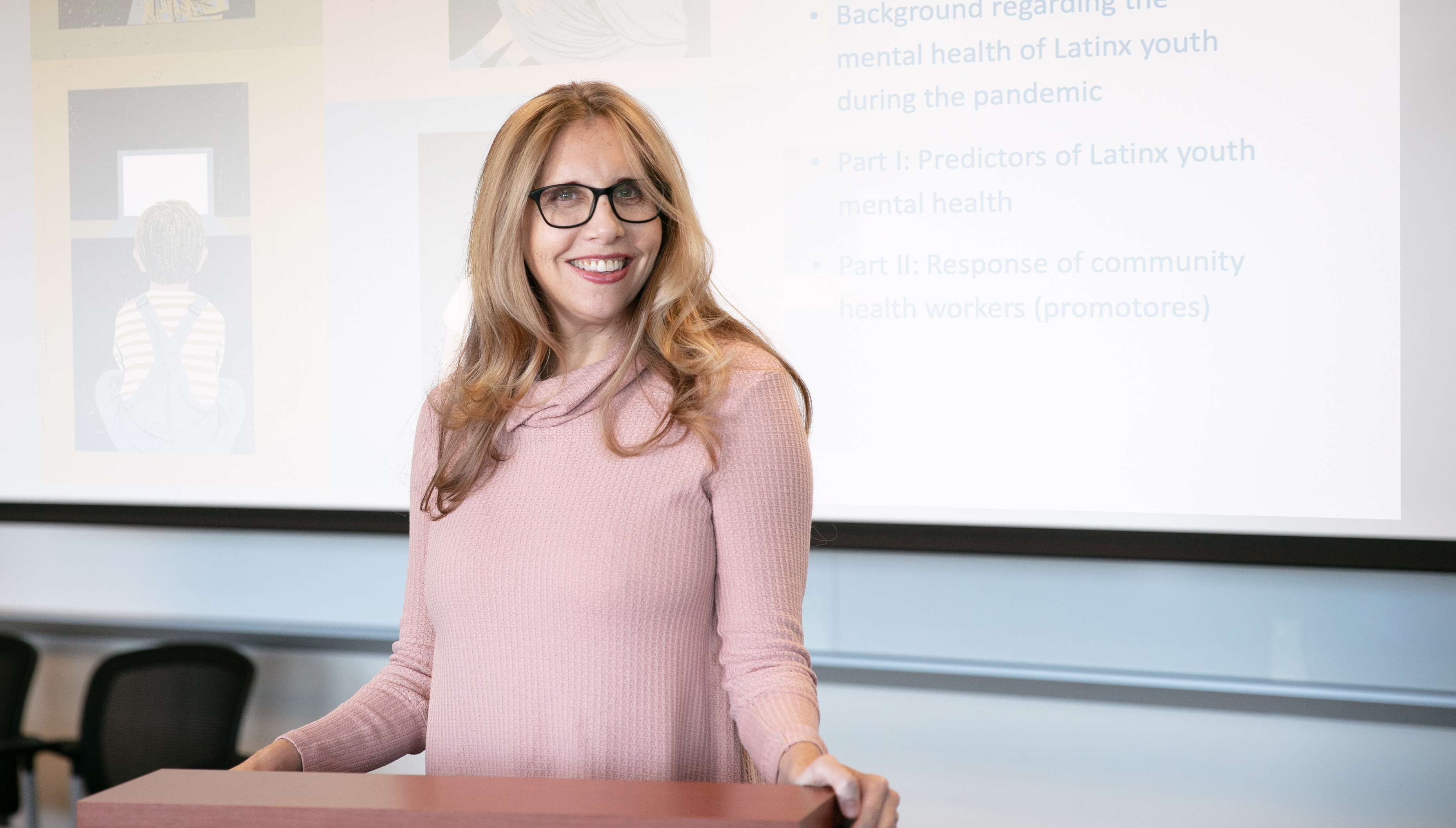
Borelli leads new NIH grant project to transform support for families affected by addiction
For parents battling substance use disorders, every stressor can be a potential trigger, every challenge a test of sobriety. But what if parenthood itself could become the anchor for recovery?
Jessie Borelli, UC Irvine professor of psychology, is testing that question. With a $452,985 National Institutes of Health grant awarded to Baystate Health in Massachusetts, she's launching “Relational Health Enhanced Parenting Support,” a groundbreaking project designed to strengthen parent-child relationships as a cornerstone of addiction recovery.
“While parenting is associated with stressors that can trigger relapse or stress in parenting with substance use disorders, it can also be a powerful motivator for sobriety and recovery,” Borelli says. “With the right supports in place, the parent-child relationship can provide a space for healthy connection, healing, and recovery.”
The project — co-led with Dr. Lili Peacock-Chambers, a pediatrician and researcher at Baystate Health and associate professor at UMass Chan Medical School - Baystate — takes an empowering approach: embedding parenting support directly into peer recovery services, where parents in recovery help other parents navigate the same journey.
The project “recognizes that with the right support, the parent-child relationship can be a source of healing, resilience, and long-term recovery,“ Peacock-Chambers says. “Our goal is to empower peer recovery specialists with the tools they need to deliver meaningful parenting support alongside recovery services.”
The peer recovery model offers something traditional clinical settings often can’t: accessibility, relatability, and scalability. Parents helping parents creates a foundation of trust that can make all the difference, the researchers say.
During the initial year, Borelli and Peacock-Chambers will partner with the Massachusetts Department of Public Health and the FIRST Steps Together program — a statewide home-visiting initiative for parents in recovery. Together, they'll develop training, consultation, and implementation strategies for peer recovery staff at six Massachusetts sites, equipping them to weave parenting and recovery support seamlessly into their work with families.
If successful, the project could expand dramatically: an additional four years and $4 million to evaluate outcomes including improved parenting, better treatment retention and reduced substance use. The ultimate goal is to produce a practical toolkit that can be rolled out in peer-led recovery programs nationwide.
“This project represents a key step in our broader effort to link recovery processes with family well-being,” Borelli says. “By improving how services engage and respond to the needs of parents and children, we can help families affected by substance use disorders heal and thrive together.”
For families navigating the dual challenges of addiction and parenting, this research offers something rare: hope that the very relationships strained by substance use can become the foundation for lasting recovery, she adds.